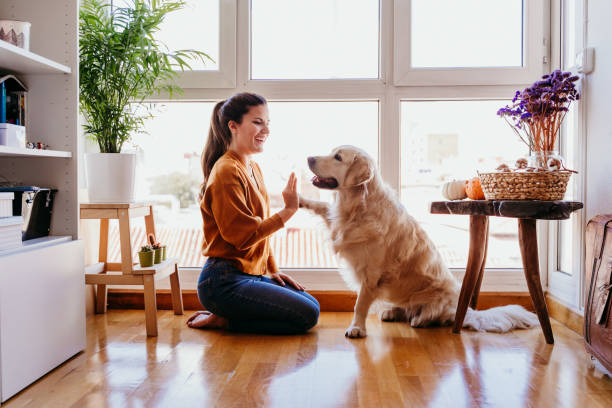How long does it take for a dog to get used to a new home?

How long does it take for a dog to get used to a new home?
Moving into a new place can be extremely stressful for all pets. However, serious anxiety behaviour can be seen in dogs in particular, because they have been domesticated for quite some time now and over time have become animals of routine and tendency.
Reasonably, you could not count on your pup to be, by its own nature, adapting to all instant changes. Every dog has a different temper and character, so the adaptation period could take days, weeks if not even months.
Let’s see what happens after you move and how you can make the relocation easier for your dog. Keep in mind that this article is for people moving their own dogs into a new place and a new dog into your home.
If you want to learn how to introduce a rescue pup into your place, check out this article.
How much time does your dog need to adjust to their new home
Usually, it takes from 2 to 3 weeks for a dog to get used to a new place, depending on their character and how they are introduced to the new place. If you want this process to go as smoothly as possible, you need to prepare everything and arm yourself with a lot of patience.
Here are our best tips on getting your dog used to a new home:
Keep the old routine going
Moving can be an extremely stressful experience for everyone, however, remember to stick to your dog’s old routine as much as possible. Do your best in continuing with the walks and meals at the times your dog is used to, even if you are in the middle of unpacking, for example. The instant pause or change of a developed habit can be very damaging to a dog so it’s important to try and avoid it.
Help your pup burn off some energy
Even though usual walks are important, try to add extra exercise to your dog’s routine. Similar to humans, dogs also depend on exercise to help relieve stress and anxiety. You have a new area to explore and new neighbours to meet! Step up your game and add an extra mile or so to the usual walk.
Introduce them to their new space
When you’re all settled in, ensure that you give your doggo the time they need to introduce themselves to the new environment. Start with one room at a time. Decide on the rooms that your dog would be allowed in, prior to the moving in date. For instance, if the kitchen and the living room are the areas they would mainly spend their time in, make these spaces known to your pet first, and limit their access to the rest of the property.
Give attention
We know. Moving can take a lot of time and effort and is emotionally draining. This being said, pet owners not giving the needed attention is a common occurrence. Give them the love and affection they deserve, and then add a little more. This way your dog will associate the new environment with feelings of joy, comfort and excitement.
If you are occupied with either the move, cleaning, unpacking or work, and are unable to spend as much time on attention, ask someone else to look after the dog. It would be ideal if the person is someone that your pet is already comfortable having around. The other option is to hire cleaning professionals to take care of those tasks for you, giving you the opportunity to spend more time with your dog.
Take some time off and be present
The best thing you can do after moving into a new place is to spend as much time with your pup as other commitments allow. Ideally, your dog shouldn’t be left alone inside for more than an hour at a time. Spending more time with them inside will give them an opportunity to adjust to the surroundings while feeling safe with you being there.
When it gets to the point when you will have to leave them for longer periods of time, try to do so gradually. Another good thing to do is going for a longer than usual walk before the first big ‘home alone’ day.
Conclusion
It may take time for your dog to get used to the move and its new home. It is very likely that during their first few days, or even weeks, they will act in an unfamiliar way- bark and howl, may seem tired, and sometimes even skip meals. Follow the earlier mentioned steps in this article and the anxious behaviours should ease over time. In the worst-case scenario, when all your efforts to help them adjust seem to be failing, better seek professional help.
